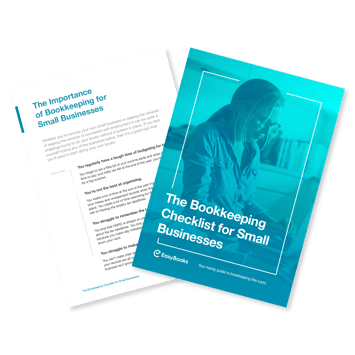As a business owner, you have a wide range of responsibilities to fulfil - and often, configuring a small business tax rate can be put to the bottom of the list. However, for businesses that pay their taxes late, there are substantial penalties.
That’s why it’s important for small businesses owners to understand their tax obligations. So we’ve compiled a list of small business tax rates and when you have to pay it.
1. Sole Traders
Sole traders, also known as self-employed, make up 60% of the UK’s small businesses. As a sole trader, you pay personal Income Tax on your business’ taxable profits. When completing and filing your Self Assessment tax return, you or your accountant would calculate it each year.
£12,750 is the standard tax-free Personal Allowance (for 2021/2022), so you won’t pay any income tax until you earn more. However, the threshold may be higher if you claim a Marriage Allowance as a basic rate taxpayer. It could also be lower if your total taxable income is more than £100,000.
If your business’ annual net profit and any other taxable income you make falls between £12,501 and £50,000, then you’ll pay the basic income tax rate of 20%. A higher rate of 40% income tax is applied to profits and other taxable income that’s between £50,001 and £150,000.
For businesses that earn over £150,000, their rate is 45% income tax.
Additionally, sole traders are required to pay National Insurance Contributions (NICs). If you’re a sole trader and your business makes more than £6,475 per year (2020/21), you have to pay flat-rate Class 2 NICs (£3.05 per week) along with your income tax (this will be after completing your Self Assessment tax return).
If you’re a sole trader and your business makes more than £9,500 in annual taxable profits (2019/20), you’ll also be required to pay Class NICs. This must also be paid at the same time as your income tax and Class 2 NICs.
2. Private Limited Companies
As a limited company, you’ll pay Corporation Tax on your profits excluding any reliefs you can claim for. At the moment, the rate is 19%. There were plans to cut this to 17%, but this has been put on hold.
Employees of limited companies pay personal tax and NICs through the company’s PAYE (pay as you earn) scheme. The limited company is required to pay employer’s NICs at 13.8% on employees who are paid more than £169 per week.
Company shareholders pay themselves dividends if enough cash is available. There’s no tax to pay on the initial £2,000 of dividend payments, however, tax must be paid if the shareholder pays themselves anymore. The basic rate payable is determined by income tax band and the basic rate payable is 7.5%, the higher rate is 35.5% and the additional rate is 38.1%. Any dividends that fall within your Personal Allowance don’t count towards your £2,000 dividend allowance.
You’re required to pay your company’s Corporation Tax within nine months and one day of the end of your accounting period. Companies that profit more than £1.5 million can pay theirs in instalments.
Limited companies must file their Corporation Tax return within 12 months to HMRC requirements and must also calculate how much corporation tax is payable.
3. Partnerships
Ordinary partnership members are usually self-employed individuals and are taxed accordingly. This also includes income tax payable on their share of any profits after deduction of their personal allowances and other forms of taxable income are also taken into account.
As standard, the tax-free Personal Allowance is around £12,500 (2020/2021). When profits and other taxable income is between £12,501 and £50,000, then the basic income tax rate is 20%. This raises to 40% when profits and other taxable income are between £50,0001 and £150,000, and this is again raised to 45% if the payable profits and other taxable incomes are more than £150,000.
Similarly to sole traders providing turnover, partners must also pay Class 2 and Class 4 NICs along with paying income tax after they’ve filed a Self Assessment tax return.
Non-corporate limited liability partnership members are taxed with income tax payable on their share of any profits, as well as other taxable income, and after any personal allowances are taken into account. If turnover thresholds are met, LLP members are also required to pay Class 2 and Class 4 NICs when they’re paying income tax after they’ve filed a Self Assessment tax return.
The rules and regulations of running your own business can be a bit of a maze, especially if you’re just starting out. To help small businesses just like yours start off on the right foot, we’ve created a guide.
Make Your Small Business Dreams Come True
Whether you’re opening your first salon or an online candle shop, to make your small business dreams come true, it’s important you understand what’s legally required of you. If you’re new to the small business world, it can be a bit of a minefield - but it doesn’t have to be.
Our Small Business Starter Kit is filled to the brim with all the knowledge you need to start up your small business. Download the guide below.







